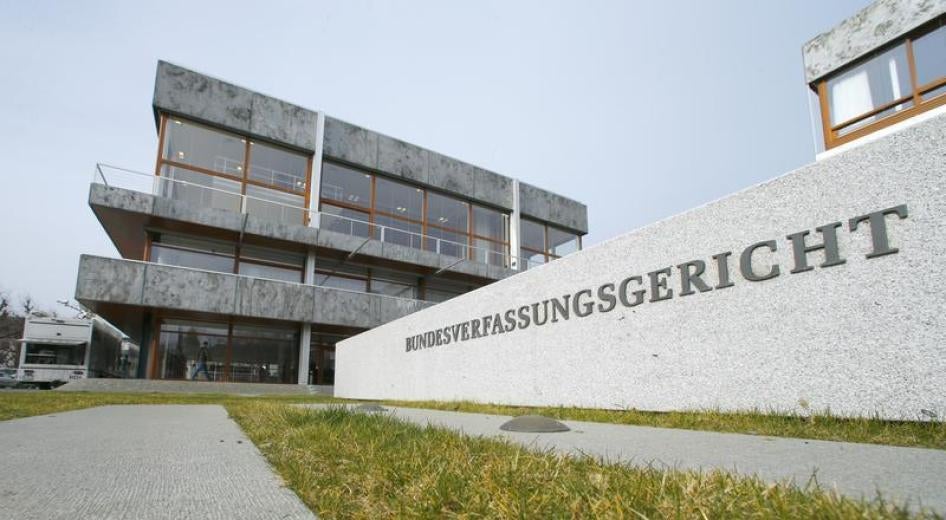While France looks to extend its rights-undermining state of emergency and Britain continues to indulge in mass surveillance, Germany’s highest court put its foot down on April 20, 2016 and said, “Enough.”
Germany’s Constitutional Court ruled that parts of the law (“BKA-Gesetz”) granting surveillance powers to federal police are unconstitutional, because they do not have sufficient safeguards to ensure a balance between the rights of the individual to privacy, and the interests of the state in investigating potential crime. Certain powers – the ability to conduct surveillance through recorded conversations or photographs, to carry out wiretaps, or remotely search computers – did not have adequate restrictions, including the possibility for judicial review, to guarantee that intrusions on the privacy of German citizens would be justified and proportionate, the court found.
The court found the law vague, overly broad and lacking “supplementary rule-of-law safeguards, particularly safeguards protecting the core area of private life or guaranteeing transparency, individual legal protection, and judicial overview.” The court said it is unclear how surveillance data was shared with other German agencies as well as foreign authorities, and an independent body should play a role in supervising information sharing. The law will remain in place, subject to restrictions until end of June 2018.
“One can’t defend freedom if one sacrifices it where it’s unnecessary,” said the plaintiff, Gerhart Baum, a former minister of home affairs and long-time defender of civil and human rights. Baum said to the media that he isn’t opposed to surveillance as long as it strikes a reasonable balance between the needs of law enforcement and privacy rights. Article 1 of the German constitution says: “Human dignity is unimpeachable.” And this is about protecting human dignity and the rule of law against excessive mass surveillance.
The Home Affairs Minister, Thomas de Maizière, claims the court’s ruling will hamper investigations of terror suspects. But, as Baum points out, authorities knew a lot about the attackers in Brussels and Paris and it didn’t stop these attacks from taking place.
Germany’s Constitutional Court has shown itself again to be a successful defender of rights against surveillance-happy authorities and politicians. And once again, Germany has demonstrated its leadership on the right to privacy in the digital age. The United Kingdom and France should take heed.









